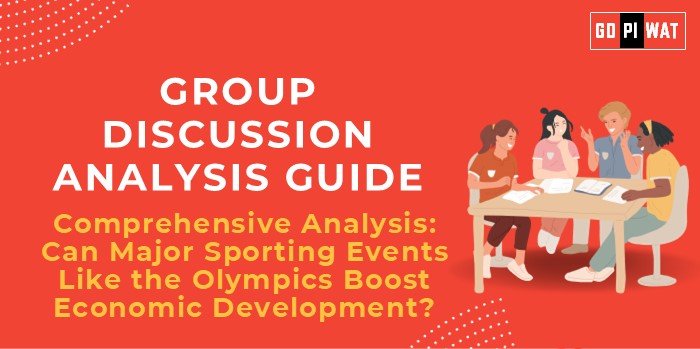📋 Comprehensive Analysis: Can Major Sporting Events Like the Olympics Boost Economic Development?
🏅 Group Discussion Analysis Guide
🌟 Introduction to the Topic
Major sporting events like the Olympics are globally celebrated spectacles that bring together nations in a spirit of competition and unity. They also serve as powerful economic stimulants with far-reaching impacts on infrastructure, tourism, and employment.
Topic Background: The first modern Olympics in 1896 in Athens highlighted the economic and cultural potential of such events. Contemporary iterations like Tokyo 2020 and Paris 2024 have sparked debates on their sustainability and economic implications.
📊 Quick Facts and Key Statistics
- Cost of Hosting (Tokyo 2020): $15.4 billion – Highlighting the financial scale of modern Olympic Games.
- Economic Impact (London 2012): Generated $14 billion in economic activity over a decade.
- Tourism Spike (Rio 2016): 500,000 additional visitors during the games.
- Employment Creation (Beijing 2008): Over 1.8 million jobs created during preparations.
- Infrastructure Investments (Sochi 2014): $50 billion – showcasing potential for urban transformation.
👥 Stakeholders and Their Roles
- Host Governments: Invest in infrastructure and promotion, aiming for long-term economic returns.
- International Olympic Committee (IOC): Ensures global participation and oversees event integrity.
- Local Communities: Benefit from job creation but may face challenges like displacement.
- Corporations: Gain through sponsorships, advertisements, and merchandise sales.
- Tourists and Fans: Contribute to economic boosts via spending on tickets, travel, and accommodations.
🏆 Achievements and Challenges
✔️ Achievements
- Urban Development: Barcelona (1992) revitalized its waterfront, boosting tourism long-term.
- Economic Gains: London 2012 led to increased retail sales and hospitality growth.
- Cultural Diplomacy: Promotes global visibility for host nations.
⚠️ Challenges
- High Costs: Tokyo 2020 exceeded its initial budget by over $5 billion.
- Infrastructure Abandonment: Facilities in Athens (2004) and Rio (2016) were underutilized post-event.
- Displacement and Inequality: Marginalized communities often bear the brunt of pre-event urban changes.
🌍 Global Comparisons
- Success: London 2012’s sustainability focus.
- Failure: Greece’s post-2004 economic struggles exacerbated by Olympic debt.
📖 Case Studies
India’s Commonwealth Games (2010): Highlighted both potential and pitfalls, from infrastructure growth to corruption controversies.
🗣️ Structured Arguments for Discussion
- Supporting Stance: “The Olympics serve as a catalyst for long-term economic and social benefits.”
- Opposing Stance: “The financial burden and short-term focus make hosting the Olympics an unsustainable endeavor.”
- Balanced Perspective: “While the economic potential is significant, the success of hosting depends on meticulous planning and sustainable development.”
📚 Effective Discussion Approaches
- Opening Approaches:
- Present recent statistics about the Olympics’ economic scale.
- Highlight an impactful case study like London 2012’s urban renewal.
- Counter-Argument Handling:
- “While infrastructure costs are high, they catalyze urban development.”
- “Tourism spikes during the games often lead to long-term growth.”
🔍 Strategic Analysis of Strengths and Weaknesses
- Strengths: Urban development, employment creation, global visibility.
- Weaknesses: Cost overruns, infrastructure underutilization.
- Opportunities: Tourism growth, international partnerships.
- Threats: Economic inequality, environmental degradation.
🏫 Connecting with B-School Applications
- Real-World Applications: Infrastructure projects, sponsorship management, sustainability in mega-events.
- Sample Interview Questions:
- “How can a country balance economic growth and sustainability when hosting major events?”
- “What lessons can India learn from other nations’ experiences with the Olympics?”
- Insights for Students: Case analysis on cost-benefit scenarios, sustainability in urban planning, and stakeholder management.


